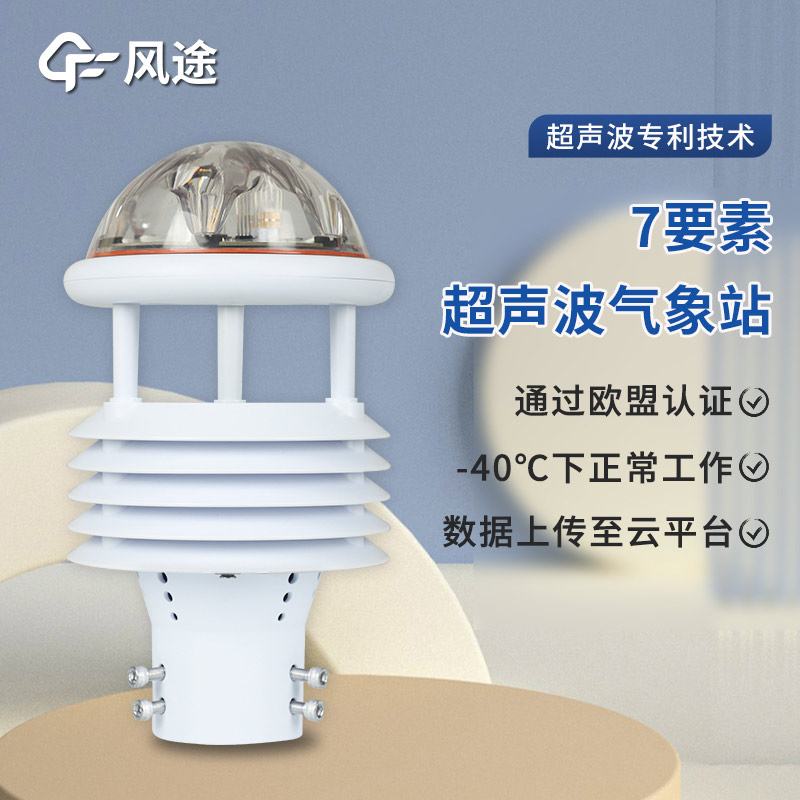Shandong Fengtu IOT Technology Co., Ltd
Sales Manager:Ms. Emily Wang
Cel,Whatsapp,Wechat:+86 15898932201
Email:info@fengtutec.com
Add:No. 155 Optoelectronic Industry Accelerator, Gaoxin District, Weifang, Shandong, China

Sales Manager:Ms. Emily Wang
Cel,Whatsapp,Wechat:+86 15898932201
Email:info@fengtutec.com
Add:No. 155 Optoelectronic Industry Accelerator, Gaoxin District, Weifang, Shandong, China
time:2024-04-03 09:12:59 source:Weather Station viewed:885 time
Meteorological instrument modules are integrated sensor systems specifically designed to monitor and record a wide range of meteorological parameters. These modules typically contain multiple high-precision sensors capable of simultaneously measuring key meteorological elements such as temperature, humidity, barometric pressure, wind speed, wind direction, rainfall and more. They are designed to be easy to install and maintain and are compatible with a wide range of data logging and transmission devices for use in a variety of application scenarios. Data can be transmitted to the monitoring system either wirelessly or by wired means. These modules are suitable for use in a variety of environments, including cities, agricultural fields, and field observatories, providing real-time data for weather forecasting, environmental monitoring, and scientific research.
Core Functions
Multi-parameter monitoring: capable of monitoring a variety of meteorological parameters at the same time, providing comprehensive meteorological data.
High-precision measurement: Adopting advanced sensor technology to ensure the accuracy and reliability of data.
Data output: Supports multiple data output methods, such as RS485, Modbus protocol, etc., which facilitates remote data transmission and integration.
Easy Integration: Modular design allows the weather meter module to be easily integrated into existing monitoring systems or used as a stand-alone monitoring device.
Technical features
All-in-one design: Compact and easy to carry and deploy quickly.
Low Power Consumption: Optimised energy management enables the Weather Meter Module to have a long battery life while maintaining high accuracy monitoring.
Data processing capability: built-in data processing algorithms enable real-time analysis and processing of collected data.
Application Cases
Smart city: Integration of weather meter modules in urban infrastructure for intelligent transport systems, public safety warnings, etc.
Agricultural monitoring: Deploying meteorological instrument modules in farmland to monitor the meteorological conditions required for crop growth and guide the practice of precision agriculture.
Environmental monitoring: used in nature reserves or ecologically sensitive areas to monitor environmental changes and assess the impact of human activities on the environment.

Today we introduce a soil sensor - water potential sensor.The concept of soil water potential:The total soil water potential consists of four elements: gravity, pressure, matrix and infiltration. In unsaturated soils, the soil matrix potential is particularly important and reflects the suction and c...
water level sensors A sensor that measures the level of water in a stationary container and can accurately measure the amount of liquid in the tank....
The Air Quality Monitoring Station is a miniaturized, intelligent, and grid-based air quality monitoring device. It integrates multiple sensors, enabling real-time and accurate monitoring of various key indicators in the air. With the help of IoT technology, the collected data is quickly transmitted...
A soil moisture monitoring system is a set of equipment used to continuously detect soil moisture, which is helpful for farmers to grow their crops. This system measures soil moisture conditions by placing sensors at different depths as needed. It also measures soil temperature and other soil proper...